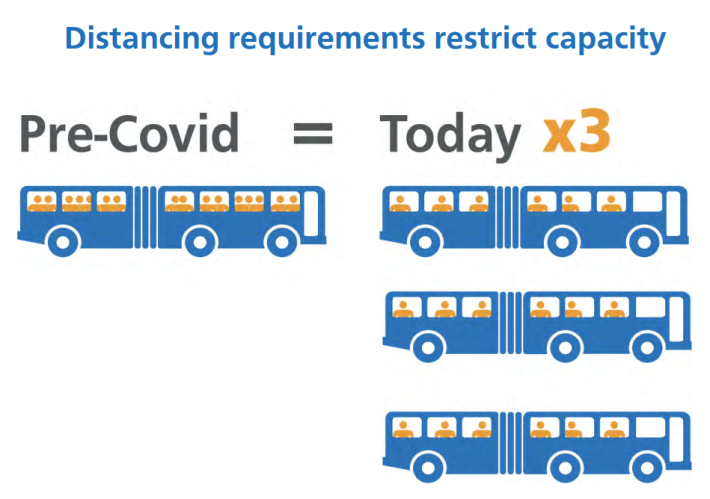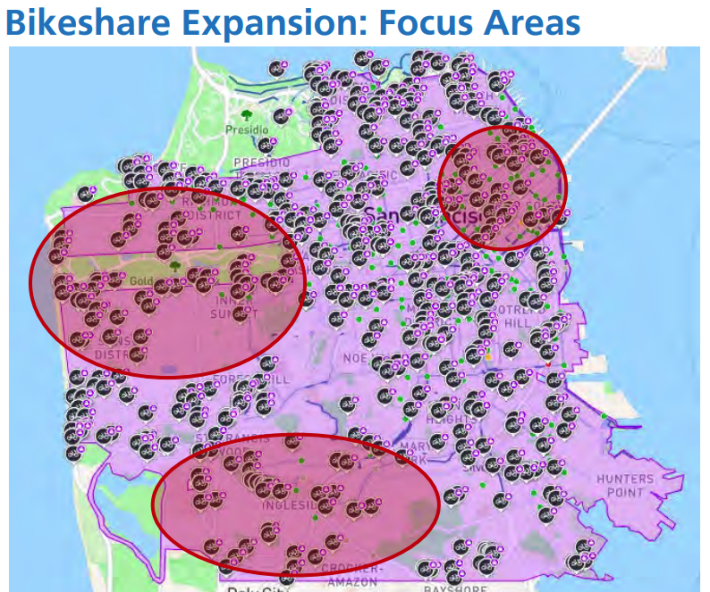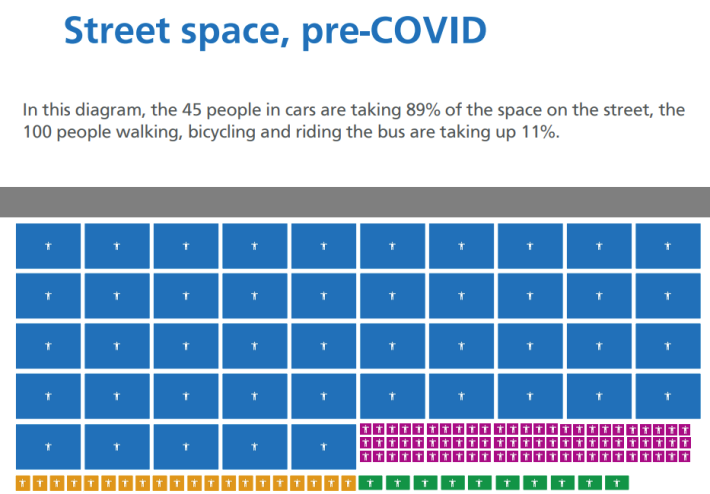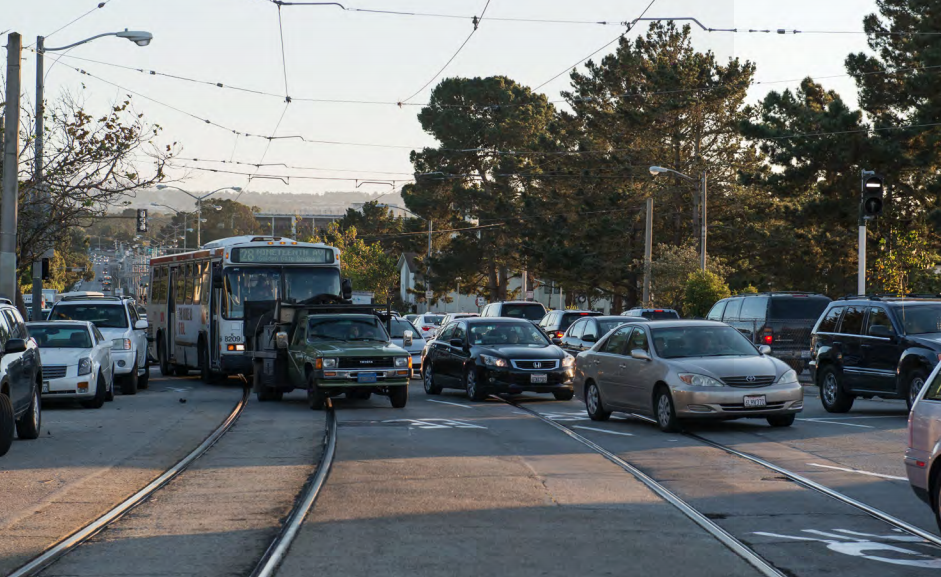As San Francisco re-opens, traffic is quickly returning. And if something isn't done about it, and done fast, "There can be no recovery," explained SFMTA director Jeffrey Tumlin, as part of a new "Transportation Recovery Plan" presented to the SFMTA board earlier this week.
The plan lays out a framework for how the city can avoid complete gridlock--and the stagnation that would cause--as the economy starts to re-open. Obviously, thanks to COVID, it would be dangerous to pack people into buses and trains like before. That means there simply has to be more room reserved for bikes and the additional buses required on certain streets so that transit riders can safely distance themselves on board.
Mayor London Breed's Transportation Advisor, Paul Supawanich summed up the geometric realities described in the report via this tweet:
Even with COVID's impact on transit capacity, buses and trains still 11x more space efficient than driving alone.
— Paul Supawanich 🚎 (@tweetsupa) June 5, 2020
from Tuesday's comprehensive @sfmta_muni Recovery Plan Preso https://t.co/kyMUr3A7HZ pic.twitter.com/ePne0tXNp9
"We’re very concerned that as people understandably retreat from public transit to their private cars out of a sense of security or safety... the problem is the roadway system can not accommodate any more vehicle traffic," Tumlin added to the board.
The report prescribes the emergency rollout of bike lanes, slow streets, and dedicated transit lanes, as the only way to keep the city moving.

It also acknowledges that protected bike lanes will take time--which the agency doesn't have. "I’d been projecting August as the return of severe congestion," said Tumlin, acknowledging streets are already starting to gridlock, with the economy barely reopened. "Turns out I was wrong."

Instead, it will shift focus to expanding the network of slow streets, which can happen almost overnight. And to help exploit those slow streets: a huge expansion of bike share.

"We're going to have to find a very different way of doing things," said Tumlin. That includes continued teleworking, he said, but it won't be enough on its own if people on bikes and scooters aren't given roads to use where they feel safe and if buses don't have their own lanes.
Streetsblog invites readers to check out the full presentation and share their thoughts below. One can also watch Tumlin's presentation to the SFMTA board HERE, starting 1 hour 39 minutes in.






